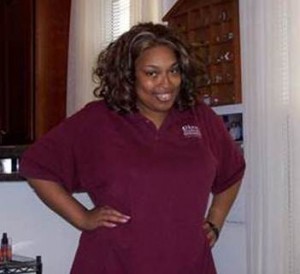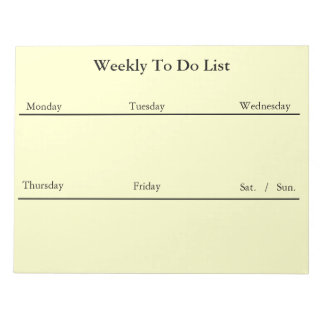Friday, February 28, 2014
Dorothy Flies Over Kansas
92 year-old Dorothy Ellis is in hospice care and asks her family for one wish --
to fly over her homestate of Kansas. Dorothy's daughter and hospice care nurse
pulled some strings and found a pilot to make Dorothy's final wish come true
just four weeks before she passed away. You can see the full story on
Yahoo!: 92-Year-Old Grandmother Gets Dying Wish Fulfilled
10 Signs of Caring Too Much
Compassion fatigue -- a.k.a. caregiver burnout -- is
what happens when a well-intentioned caregiver crosses a hard-to-see line from
One-Who-Helps to One-Who-Needs-Help. And it can happen to anyone. It
happens precisely because you care so much.
Are you at risk of caring "too much"? Here are ten warning signs:
Are you at risk of caring "too much"? Here are ten warning signs:
-
You use words like "always" and "never" with regard to
caregiving.
Beware falling into absolutes: "I promised Mom we'd never put her in a nursing home." "I'm sorry I can't go to lunch because I always feed Sam by myself."
Being overly rigid can put you at risk for burnout. -
Your friends seem to have stopped calling.
You may be feeling isolated or annoyed that your old circle no longer seems to check up on you and how you're faring. But is it possible that you've turned them down so often because of your caregiving duties, or that caregiving concerns so dominate your life and conversation, that they got the message you're just not interested in them?
A social life is a two-way street. -
The last time you felt happy was. . . uh. . . um. . . let's see. .
. Nobody ever said looking after a sick or aging loved one was a romp
in a field of wildflowers. But if your everyday life has lost even its grace
notes, so that you find no pleasure in it, you're at risk.
Every day needs at least one happy petal or two. -
Everyone assumes you'll step forward; nobody asks.
Have you become the default go-to girl (or guy) in your family? When the sick person is your spouse, this is logical. (Even then, you need a support system to pitch in.) But it's a different matter when the family member being cared for is a parent, grandparent, or other relative -- and the entire burden of responsibility seems to have settled on your shoulders whether you've volunteered or not.
As caregiving expert Carol O'Dell is fond of saying, "People take as much advantage of you as you let them." -
You're overweight or out of shape.
True, it may not be your caregiving that's to blame. We could sit around and make a long list of culprits for poor health that includes everything from our car culture to a conspiracy of corn syrup to unfortunate genes. But the fact remains that poor self-care is a big red flag for caregiver burnout. Being selflessly focused on others by definition means you're not focused on yourself. And yet you need to be the #1 person you look after, in order to be shipshape (or at least functional!) to look after others.
If you don't like what you see when you look in the mirror (or sit listening to the doctor's concern in the exam room), give yourself permission to be selfish. -
You can't remember the last time you took a vacation.
Vacations are really hard when you have a disabled or impaired person to
consider. And not being able to even remember the last break you had is
a sure sign you're due for one. It doesn't have to be three weeks in France.
Start small if you must: a simple overnight at a friend's house or a local
B&B. Just do something.
To stop caregiving stress, stop caregiving sometimes. -
All conversations turn to caregiving.
Maybe you remember when your kids were babies and you'd hire a babysitter -- and proceed to talk about the kids all evening? Not a great idea. Or worse, you call home to check up! If every conversation with your partner or other family members concerns one subject, it's a warning sign that topic is monopolizing your life.
Diversify! -
You have no hobbies.
You say you have no time for hobbies? Your hobby doesn't have to be a conventional one like stamp-collecting or bird-watching. It just needs to be an outlet away from caregiving. Reading trashy novels uninterrupted, taking up knitting, joining a book club, taking adult ed courses, being a matinee-movie addict, or enjoying your children and grandchildren all count, too "“ anything that takes you away from caregiving for bursts of time.
Bonus points if it takes you out of the house, too. -
You can't sleep through the night.
Two common causes: You're up tending to a sick person (or Alzheimer's wanderer, or someone else who gets by on just a few hours of sleep a night) or you're sick with stress or a physical problem yourself. A sleepless night or two go with the territory of caregiving -- but if it's become your lifestyle, it's a problem you need to correct.
Sleep isn't optional! -
You dread waking up in the morning.
We all have this experience, usually when we're in the midst of a health crisis that seems like a bad dream (but isn't). Health nightmares can go on for years, unfortunately. But when the crisis has passed and you've sunk into a new routine "“ and you still feel heavy-hearted and hopeless, your body is crying out for you to enlist some support.
Nobody "“ not even the most well-intentioned, big-hearted, and selfless among us -- is meant to endure a tough situation all alone, day after day, year after year.
 Dementia Signage for the Home
Dementia Signage for the Home
Dementia Signage for the Home
$22.75 - EZ-C Bright Green 3 Ring Binder
Thursday, February 27, 2014
Caregivers DO Matter!
Do I Matter if I’m a Caregiver?

Family caregivers and professionals matter. I thought I
mattered while I was a full-time caregiver, though not everyone agreed.
And despite the thousands of caregiver-authored books (mine included) and
hundreds of speeches given each year (including mine), we remain mostly in the
shadows.
Even celebrities diagnosed with dementia and their caregivers seem to fall by
the wayside until they do something that captures the mainstream market’s fickle
fancy.
The river of life is fast moving and all too often caregivers are caught inFor these reasons, I wonder if we need to do something more–like a massive
the flow without a life jacket.
recognition campaign featuring the guardians of people who cannot care for
themselves–caregivers.

Someday, you and I might require care.
- Would you want to ensure your caregiver has a livable
wage? - Would you want to ensure your caregiver knows enough about
this insidious disease called dementia that claims millions of
innocent lives each year? - Would you want to know that your family won’t be left among the
ruins trying to provide you with quality care?
Unfortunately, ours is one of the leading fields (besides farming) that
practices silo management. Each organization wants to make headway alone.
Meanwhile we advise families to seek help. How can we in good conscience provide
this advice then shun the cooperative spirit of collaboration in our own
efforts?
Researchers are scrambling to discover a cure or even ways to prevent
dementia. The many diseases that lead to dementia such as Alzheimer’s, Lewy
body, vascular, Parkinson’s, and dementia’s rarer http://www.zazzle.com/artnip*causes make it harder than salmon trying to swim upstream blocked by a dam!

It’s all about fractions.
The way I see it, if researchers were to partner with a fraction of
the hundred million-plus caregivers around the world, they’d extend their
research outside of the laboratory and onto the front lines.
If caregivers were to receive a fraction of the billions spent on
research and funding in return for reporting on what works (and doesn’t), we
could amass a wealth of knowledge with real-time data from the front lines.
Amidst the millions and billions in funding, something gets lost–the glue
that holds everything together–the caregiver. Click on the images to read
caregivers’ stories from around the world.
What do you think? Is starting an “I’m a Caregiver and I Matter” campaign too
lofty a goal? If not, what’s our first step? Please take a moment to share your
thoughts below because: You’re a Caregiver and YOU Matter.
lofty a goal? If not, what’s our first step? Please take a moment to share your
thoughts below because: You’re a Caregiver and YOU Matter.
 Dementia Signage for the Home
Dementia Signage for the Home
________________
Dementia Signage for the Home
$22.75 - EZ-C Bright Green 3 Ring Binder
Wednesday, February 26, 2014
Finding Assisted Living Through Word of Mouth
No doubt you are aware of the importance of word of mouth in your everyday
life. People talk to people about products and services all the time. It's no
different when you're searching for an assisted living community: People share their opinions when they're deciding on senior
living for their loved ones.
But guess what? So do the providers of care. And providers who use word of mouth to make themselves known to potential clients are not just good marketers -- they probably are also good stewards of care. Here's why.
When senior care providers embrace word-of-mouth strategies, they're embracing transparency with residents and families and encouraging community involvement and interaction. Here are some ways you might hear about senior living providers that could indicate they're worth a look when you're choosing care for a loved one.
1. They Engage People
Providers who "get it" are out in the community, seeking input into new services and providing previews and access to current plans. What do you really know about the care providers in your community? When you Google them, what do you find? Those providers who are hosting community forums and providing education are probably among those you want to bring to the top of your list for consideration. Being on the cutting edge is a good sign.
2. They Share Interesting Information
In the book Contagious, Jonah Berger uses the term "social currency." Social currency is about providing people with information that's useful or fun and makes them feel like an insider. When someone shares something that's interesting, surprising, or novel, they look good. For example, when you share a YouTube video with people and they like it, you look good in their eyes. Clark Retirement Home gave people an opportunity to create social currency when they created a video that residents and families could share with others. And let's face it, wouldn't you give this place a look-see after seeing how much fun the residents are having?
3. They Create Triggers
A trigger is something that makes you think of the source. Do providers show up where you live and work, adding value and educating you? For example, caregiving issues in the workplace are becoming more prevalent. Progressive employers are starting to address this trend through benefit programs and education. If a healthcare provider in your community is part of that education in the workplace, they not only are providing a valuable service but they're creating a trigger. You will remember who came and provided you with valuable information.
4. They Give Things Away
An assisted living community that will come into your home and give a home assessment for aging in place is one to consider. Yes, they may provide assisted living at home that they are trying to pitch to you. But if they don't have a hard-sell approach, it means they understand that when you need an advanced level of care, you'll remember and consider them.
5. They Adopt Causes That Are Meaningful to You
I consult with healthcare providers and tell them that it's good for them to support causes in the local community. But to really set themselves apart, they need to "own" their own social cause. For example, one of the biggest concerns you probably have for your elder loved one is making sure he or she doesn't fall and break a hip. So a healthcare provider that takes a particular interest in preventing falls could be appealing to you later, should your loved one need advanced care. Study the causes your local healthcare providers are adopting. It says a lot about them, their culture, and how a loved one might benefit under their care.
Providers of care know that getting out into the community with word-of-mouth strategies is the right thing to do for potential clients -- and that it may also result in business down the line. Smart consumers should recognize these behaviors in providers and know that those who are actively engaged in the community probably have little to hide and much to offer.
But guess what? So do the providers of care. And providers who use word of mouth to make themselves known to potential clients are not just good marketers -- they probably are also good stewards of care. Here's why.
When senior care providers embrace word-of-mouth strategies, they're embracing transparency with residents and families and encouraging community involvement and interaction. Here are some ways you might hear about senior living providers that could indicate they're worth a look when you're choosing care for a loved one.
1. They Engage People
Providers who "get it" are out in the community, seeking input into new services and providing previews and access to current plans. What do you really know about the care providers in your community? When you Google them, what do you find? Those providers who are hosting community forums and providing education are probably among those you want to bring to the top of your list for consideration. Being on the cutting edge is a good sign.
2. They Share Interesting Information
In the book Contagious, Jonah Berger uses the term "social currency." Social currency is about providing people with information that's useful or fun and makes them feel like an insider. When someone shares something that's interesting, surprising, or novel, they look good. For example, when you share a YouTube video with people and they like it, you look good in their eyes. Clark Retirement Home gave people an opportunity to create social currency when they created a video that residents and families could share with others. And let's face it, wouldn't you give this place a look-see after seeing how much fun the residents are having?
3. They Create Triggers
A trigger is something that makes you think of the source. Do providers show up where you live and work, adding value and educating you? For example, caregiving issues in the workplace are becoming more prevalent. Progressive employers are starting to address this trend through benefit programs and education. If a healthcare provider in your community is part of that education in the workplace, they not only are providing a valuable service but they're creating a trigger. You will remember who came and provided you with valuable information.
4. They Give Things Away
An assisted living community that will come into your home and give a home assessment for aging in place is one to consider. Yes, they may provide assisted living at home that they are trying to pitch to you. But if they don't have a hard-sell approach, it means they understand that when you need an advanced level of care, you'll remember and consider them.
5. They Adopt Causes That Are Meaningful to You
I consult with healthcare providers and tell them that it's good for them to support causes in the local community. But to really set themselves apart, they need to "own" their own social cause. For example, one of the biggest concerns you probably have for your elder loved one is making sure he or she doesn't fall and break a hip. So a healthcare provider that takes a particular interest in preventing falls could be appealing to you later, should your loved one need advanced care. Study the causes your local healthcare providers are adopting. It says a lot about them, their culture, and how a loved one might benefit under their care.
Providers of care know that getting out into the community with word-of-mouth strategies is the right thing to do for potential clients -- and that it may also result in business down the line. Smart consumers should recognize these behaviors in providers and know that those who are actively engaged in the community probably have little to hide and much to offer.
Subscribe to:
Posts (Atom)

























